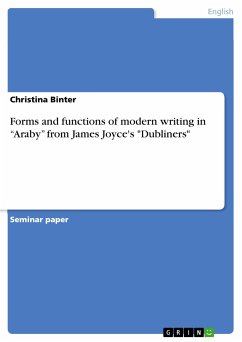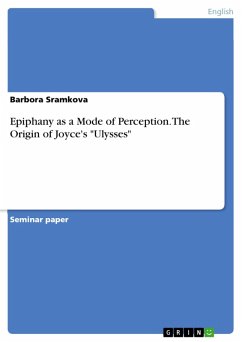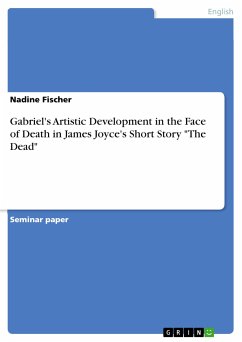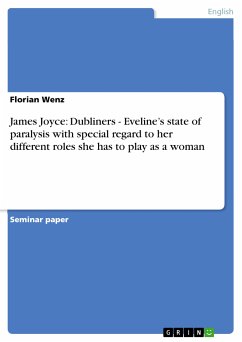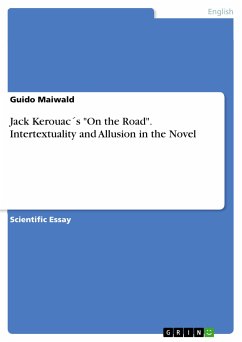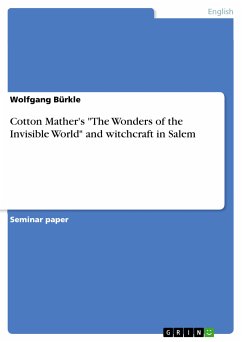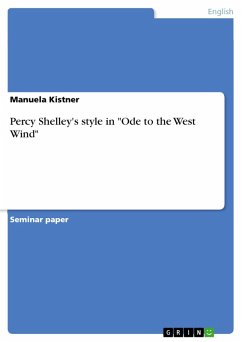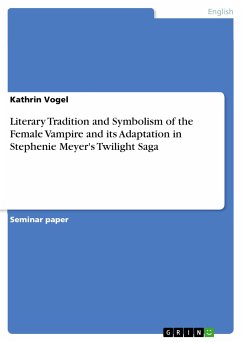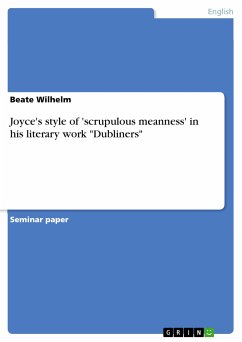
Joyce's style of 'scrupulous meanness' in his literary work "Dubliners" (eBook, PDF)
Versandkostenfrei!
Sofort per Download lieferbar
Statt: 15,95 €**
13,99 €
inkl. MwSt. und vom Verlag festgesetzt.
**Preis der gedruckten Ausgabe (Broschiertes Buch)
Alle Infos zum eBook verschenkenWeitere Ausgaben:

PAYBACK Punkte
0 °P sammeln!
Seminar paper from the year 2006 in the subject English Language and Literature Studies - Literature, grade: 2, University of Ulster (Faculty of Arts), course: Proseminar Irish Author Studies, language: English, abstract: When in 1914 James Joyce wanted to have his literary work Dubliners published by the British publisher Grant Richards, it was not at all as easy as Joyce had imagined. Before Richards could accept the work changes had to be applied that were accompanied by an exchange of various letters between author and publisher. The reason for Richard's hesitation to publish the book in i...
Seminar paper from the year 2006 in the subject English Language and Literature Studies - Literature, grade: 2, University of Ulster (Faculty of Arts), course: Proseminar Irish Author Studies, language: English, abstract: When in 1914 James Joyce wanted to have his literary work Dubliners published by the British publisher Grant Richards, it was not at all as easy as Joyce had imagined. Before Richards could accept the work changes had to be applied that were accompanied by an exchange of various letters between author and publisher. The reason for Richard's hesitation to publish the book in its first version was the very accuracy of its language. Literary conventions would have been shocked by Joyce's accurate and entirely realistic description of social situations and psychological states. In his letter to Grant Richards Joyce tries to justify his style, and it is thus that he speaks of 'scrupulous meanness' for the first time. The term 'meanness' connotes stinginess or the lack of generosity. Joyce uses it to describe the economy of language applying to his stories. However, the interpretation demands a more complicated understanding of the term. 'Scrupulousness' is a crucial element both in Joyce's use of language, and in the structure and form of the stories. 'Scrupulous meanness' refers to a most complex and heavily allusive style that determines the reading of Dubliners. From the minimum of words Joyce succeeds to extract the maximum effect so that the very economy of his style gives Dubliners such concentration and resonance that it "passes through realism into symbolism" (Dubliners,1991, p. xix). Joyce puts this style forward as a means to express his moral intent. This essay aims to examine James Joyce's method of 'scrupulous meanness' in two short stories chosen from the collection of Dubliners: 'The Sisters' and 'The Dead'. In addition, Joyce's attempt of conveying a temper of death and hopelessness shall find access into the discussion.
Dieser Download kann aus rechtlichen Gründen nur mit Rechnungsadresse in A, B, BG, CY, CZ, D, DK, EW, E, FIN, F, GR, HR, H, IRL, I, LT, L, LR, M, NL, PL, P, R, S, SLO, SK ausgeliefert werden.




